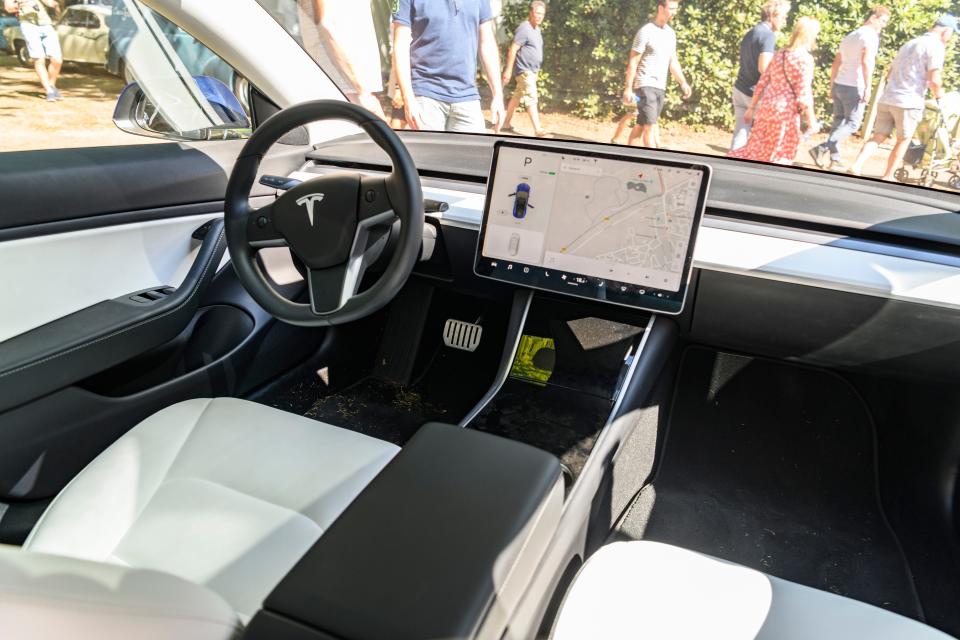A driver says his Tesla drove onto active train tracks after Autopilot mistook them for a road

A Tesla driver said Autopilot mistook train tracks for a road outside Sacramento.
Local police shared a post on Facebook urging Tesla drivers to stay "vigilant" when using Autopilot.
It's the second recent incident where Autopilot steered a Tesla toward train tracks.
A Tesla owner says he ended up in the middle of an active train track after Autopilot mistook it for a road, a California police department said in a warning to other drivers.
The alleged incident happened outside Sacramento. Police didn't share the driver's name or the condition of the car.
Woodland Police Department in California issued the warning on Wednesday in a Facebook post reminding Tesla drivers to stay "vigilant while using Tesla's Autopilot feature."
In the warning, police said the driver had given them a statement that his car had driven onto the tracks when Autopilot was engaged. The police said they hadn't verified what happened and that they were still investigating.
The post included a list of reminders for Tesla drivers using Autopilot, including to stay alert and keep their hands on the wheel. The police also said to regularly check surroundings in self-driving mode and noted that Autopilot is "not a replacement for attentive driving."
Woodland Police Department did not immediately respond to a request for comment from BI.
The reported California incident is the second in two months with drivers saying a Tesla in Autopilot mistakingly drove onto railway tracks. The last incident occurred on May 8 and almost resulted in a freight train crash, the driver said, according to a report from NBC.
A video of the incident showed the vehicle driving down a foggy road toward a moving freight train and swerving right before it collided. The driver told NBC he took responsibility and said he had become complacent with the technology, the report said.
Tesla describes Autopilot as a set of advanced driver-assistance features meant "to make driving safer and less stressful," according to its website. It notes that none of the features make the vehicle "fully autonomous or replace" the driver.
For years, Elon Musk has been saying that self-driving cars are imminent and once said Tesla Autopilot is 10 times less likely to crash than the average car.
But the transition hasn't been as seamless as Musk has suggested. Tesla recalled over 2 million vehicles in December due to concerns over Autopilot. And the National Highway Traffic Safety Administration identified in an April report more than 200 front-end crashes when Autopilot was engaged, 13 of which it said were fatal.
Tesla did not return a request for comment.
Read the original article on Business Insider

 Yahoo Autos
Yahoo Autos 